Pathways to Energy Transition: Innovations in Decarbonization
From packaging circularity to alternative biofuels for shipping and aviation, the workshop Pathways to Energy Transition brings to Prague insightful discussions on the latest trends and innovations in decarbonization. AMIRES, in the framework of the Luminosity project, brought together an exceptional panel of speakers, including representatives from the Czech Ministry of Environment, renewable energy researchers and experts, to share their most recent contributions to the field. To join us, please register in the link below!
When:
November 28thTime:
9:00 - 16:00Where:
Hotel Diplomat
Evropska 15
16041 CZ
Prague
Agenda
Speakers
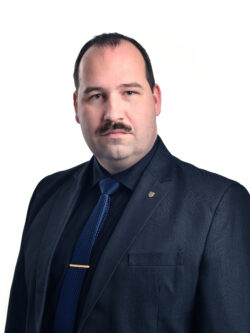

Ing. Lukáš Minařík is an expert in energy and climate policy with a background in cybernetics and energy management, holding a B.Sc. in Cybernetics and Measurement (2010) and an Ing. in Economics and Energy Management (2012) from the Czech Technical University in Prague. Since joining the Ministry of Environment in 2012, he has advanced from councilor to his current roles as Head of the Department of Decarbonization of Industry and Energy and Deputy Director of Strategy for Decarbonization. He also serves on Technical Standardization Commission 14 for Energy Management and Sustainable Energy Consumption and is a member of the Expert Advisory Body for the THÉTA energy program under the Technology Agency of the Czech Republic.
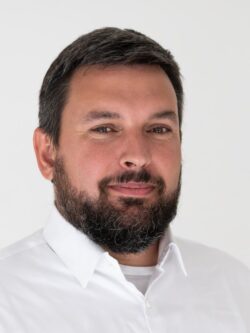

Lukáš Ferkl is the co-founder and CTO of EnviTrail, where he focuses carbon footprint caluclations and ESG reporting for a diverse portfolio of clients, including industry leaders like Škoda Auto, Linet, or JRD Group. With a Ph.D. in Control Systems and Robotics from the Czech Technical University in Prague, he has dedicated his career to advancing sustainability and energy efficiency. Prior to EnviTrail, Lukáš Ferkl served as the Director of the University Centre for Energy Efficient Buildings, managing large-scale projects, including EU research projects. His experience includes leading sustainability initiatives such as the Environmental Product Declaration for the Jokeri Tram and conducting sustainability stress tests for financial institutions like ČSOB.
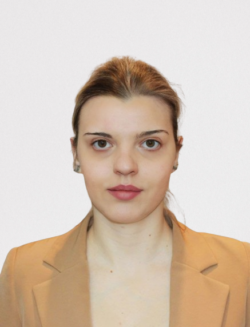

Silvia Bolognesi is a postdoctoral researcher (Juan de la Cierva Formación fellowship) at University of Girona, Spain, affiliated with the Laboratory of Environmental and Chemical Engineering (LEQUIA). She is an environmental engineer by formation, and she holds a double doctorate obtained at the University of Pavia (Italy) and University of Girona. Her research interest lies in the field of microbial electrochemical technologies (METs) for biofuels and bioenergy production, focusing on the coupling of METs with microalgae and their application in CO2 capture and electro-conversion into methane. Silvia has carried out her research activity by contributing to several European and national projects and collaborating with companies in the framework of technology transfer agreements to shorten the gap between academic research and real-world application of innovative technologies.
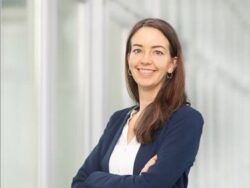

Elizabeth von Hauff studied Physics at the University of Alberta in Edmonton, Canada. Her PhD and Habilitation work was performed at the University of Oldenburg, Germany in experimental physics. In 2011 Elizabeth accepted a joint appointment between the Institute of Physics, University of Freiburg and the Fraunhofer Institute for Solar Energy Systems (ISE). From 2013 – 2021 Elizabeth was an Associate Professor in Physics at the VU Amsterdam. In 2020 she was appointed as a special Chair in Chemistry at the University of Amsterdam. In 2021, she accepted an appointment as director of the Fraunhofer FEP and Professor in Electrical Engineering at the TU Dresden. Her research interests lie in fundamental questions in physics and chemistry within the context of real applications.
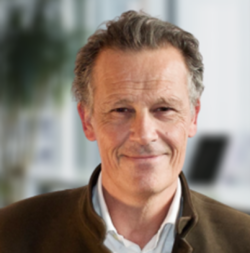

Philippe Gendret has been interested in energy issues since his horticulture studies in 1989. In 2012, his focus shifted towards the management of energy services for Yverdon-les-Bains, a Swiss town with 30,000 inhabitants, where he gained experience with multi-energy approach involving district heating, water, gas, electricity, photovoltaics, and wind power. Since 2023, he has been actively supporting the Turn2Watt incubator, developing innovative energy demonstrators for commercialization in Switzerland and across Europe.
Turn2Watt, founded in 2022, is a spin-off of PLANAIR, a leading engineering firm dedicated to energy transition based in Switzerland and France (https://www.planair.ch/). The products are designed according to local and circular economy, including vertical solar solutions, solar power plants on recycled wind blades and alpine solar power plants.
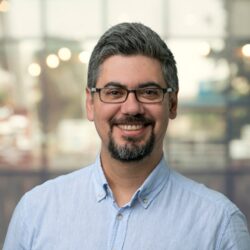

Dr. Ilker Dogan received his M.S. degree in physics from the METU, Ankara, Turkey, in 2008. He obtained his Ph.D. in plasma physics from Eindhoven University of Technology, Eindhoven, The Netherlands, in 2014, where he worked on plasma processing of silicon nanocrystals for PV applications. In 2017, he joined TNO, and started working on upscaling perovskite solar cells and modules. He is currently a team leader and project manager focusing on R2R produced flexible perovskite solar cells. His main research interest is to upscale perovskite PV technology on various flexible and rigid substrates, using environmentally friendly processes, without compromising the energy yield.
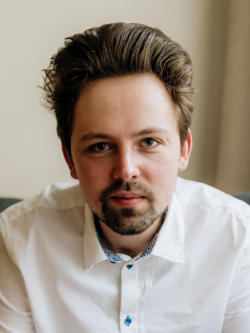

Jan Sochor works as an analyst for the Czech Hydrogen Technology Platform (HYTEP). For more than three years, he has focused on analyzing legislative proposals, strategic plans, and the latest reports on the development of the hydrogen economy in both the Czech Republic and Europe. He also assists HYTEP with various tasks, including member communications, PR activities, and the implementation of different hydrogen projects in the Czech Republic. Jan holds a degree in European Studies from the Faculty of Social Sciences at Charles University.
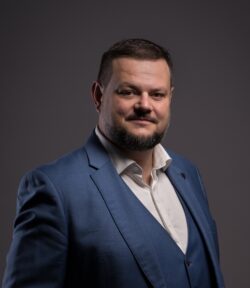

Dr. Jan Burda is a deputy director for science and technology at the VUHU Research Institute (Czech Republic), specializing in the fields of energy transition, industrial decarbonization, and the environmental impacts of mining. He holds a doctorate in Geography and has been involved in numerous international projects, focusing on the sustainable reclamation of post-mining landscapes and the development of innovative technologies for reducing industrial carbon and methane emissions. His current research is dedicated to post-mining and industrial digitalization, with a particular emphasis on the integration of modern energy solutions and resource efficiency in heavy industries. Dr. Burda collaborates closely with industry stakeholders, and research institutions to bridge the gap between academic research and practical industrial applications. He is actively engaged in several European projects aimed at promoting sustainable mining and energy practices, making significant contributions to both the scientific community and industrial innovation.
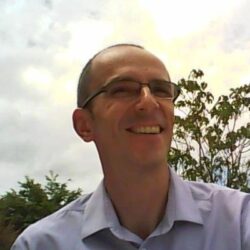

Dr. Arnaud Littner is Deputy CTO at IPC, the innovation center for the French plastics industry. He is responsible for leading the research program on the Circular Economy of plastic products. His favorite topics are reuse, repair and recycling of plastic products, low impact materials, environmental impact assessment, consumer safety, innovative business models and consumer behavior. Arnaud manages the French working group on the reuse of plastic packaging, in collaboration with professional associations, and leads a project with the Extended Producer Responsibility organizations to certify reusable packaging. Before taking up this position, Arnaud was IPC’s European Manager for 12 years during which he built and managed multi-stakeholder European partnerships. He holds a PhD in materials sciences from the University of Nancy obtained in collaboration with the German research center Dechema.
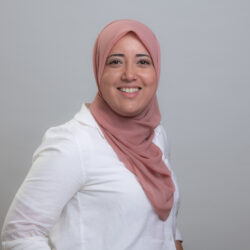

Nouha Gazbour is an expert in Life Cycle Assessment and the photovoltaic (PV) market, serving as a sustainability manager at CEA INES for 10 years. She has led environmental and economic analyses of photovoltaic systems, developing a strong expertise in the market dynamics, environmental impacts, and economic advantages of solar energy. Today, She is the representative of CEA in working groups for the implementation of new environmental regulations. In this capacity, she coordinates efforts and leverages her expertise in sustainability and the photovoltaic sector to ensure that these regulations are effectively developed and integrated within the industry . She is involving in more than 10 European projects dealing with the sustainability of PV modules. She holds an engineering degree from the National Engineering School of Monastir in Tunisia and a PhD in Environmental Engineering from the University of Grenoble and ENSAM in France. During her doctoral research, she developed a tool for integrating eco-design into photovoltaic technologies, which is now pivotal in guiding technological choices at INES and has been adapted for other sectors like microelectronics and hydrogen.
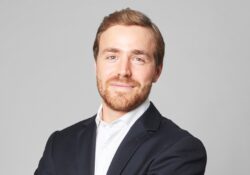

Dr. Philipp Good performed his PhD research in Mechanical Engineering at ETH Zurich in close collaboration with a concentrated solar power company. He joined Synhelion in 2017. Philipp has more than ten years of experience in the design, modelling, engineering, and experimental testing of high-temperature solar receivers and the optical alignment, characterization, and operation of solar concentrators.
Venue
Hotel Diplomat
Evropska 15
16041 CZ
Prague
Gallery
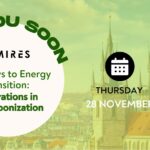
Contacts
In case of any questions please feel free to reach out to the organisers!
Contact for speakers:
Betina Debastiani Benato
benato@amires.eu
Contact for attendees:
Cristina Dinca
dinca@amires.eu










